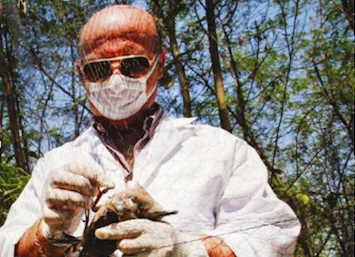
(Ford School)
The Skoll Global Threats Fund pioneered the EpiHack, or “epidemiology hackathon,” which design digital tools that allow communities to detect, report, and verify disease outbreaks in real time. Annie Maxwell, the group’s president and an alumna of the Gerald R. Ford School of Public Policy, says one particular EpiHack, focusing on avian flu in Thailand, was special. “It was a big, late-night conversation, says Maxwell. “We walked into the room with one view of the world, and we came out completely different, and totally for the better.” Since its founding in 2009, the Skoll Global Threats Fund has identified leverage points where a moderate philanthropic investment can make a big impact on complex challenges like climate change, water security, nuclear proliferation, and pandemics. With pandemics in particular, the fund believes there’s a crucial point—after the outbreak of a disease, but before it becomes an epidemic—when quick intervention can actually head off disaster.
